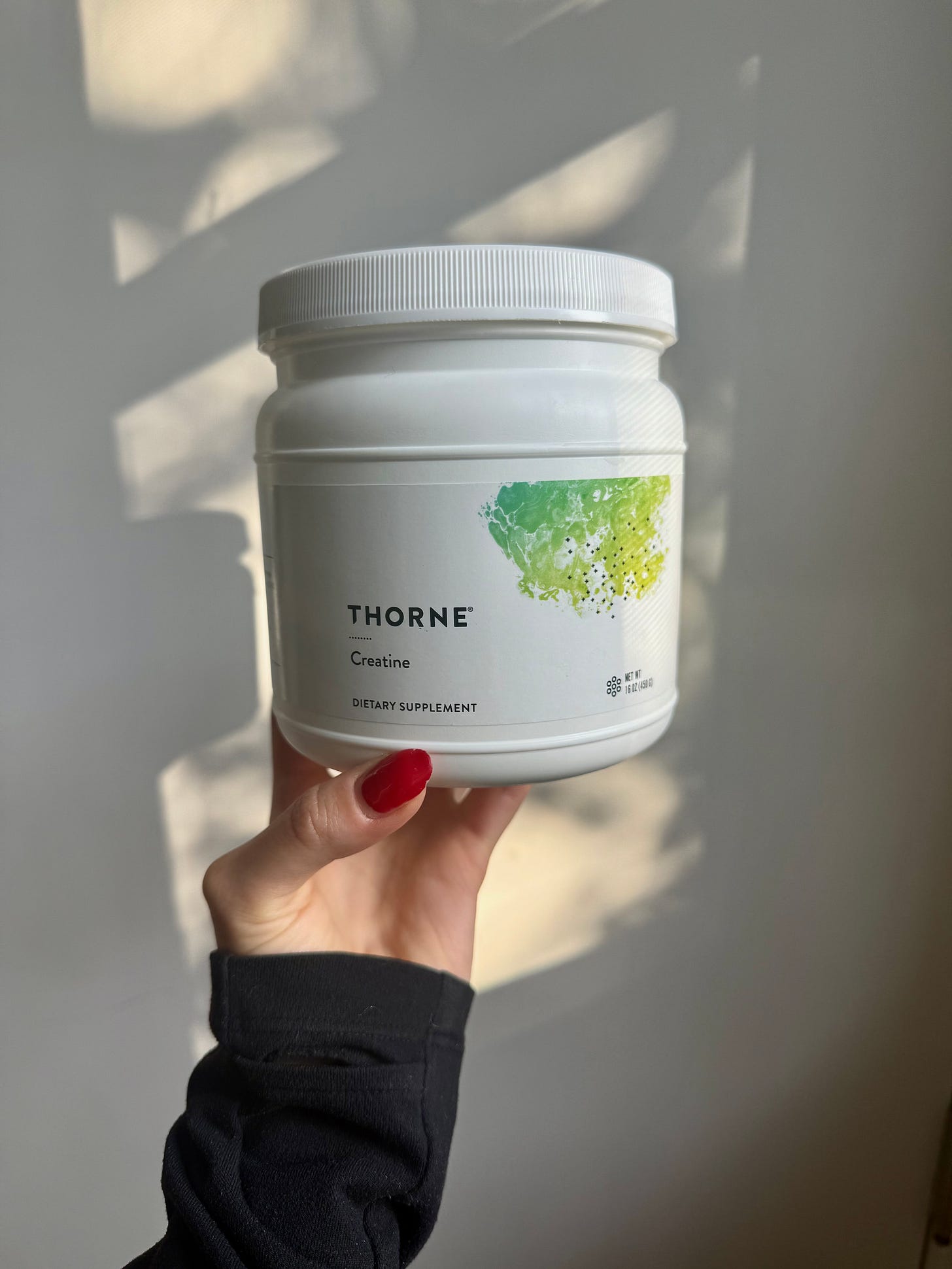Let’s talk about creatine.
It’s been used in the gym and with bodybuilders for years, but now it seems like everyone is talking about it – from peri-/menopausal women to your average wellness enthusiasts, it seems like everyone is talking about and taking creatine!
Creatine isn’t just for athletes anymore; it’s gaining recognition as a supplement that can support energy, recovery, and even brain health.
What is creatine?
Creatine is a naturally occurring compound stored mostly in your muscles, with smaller amounts in your brain. It’s produced in the body by using the amino acids glycine, arginine, and methionine. We also consume creatine in food, primarily red meat and animal products.
What does creatine do in our bodies?
When exercising, your muscles use ATP to power muscle contractions. However, ATP can run out quickly.
That’s where creatine comes in. Creatine helps your muscles recycle ATP, giving your muscles more available energy to continue to work hard. This translates into better strength, endurance, recovery, and performance. Beyond exercise, studies also suggest that creatine plays a role in cognitive function, mental clarity, and even mood. A new pilot study suggests that creatine could play a role in improving cognition in patients with Alzheimer’s.
Who should take creatine?
There is a lot of research on creatine, and in my practice, I recommend it to the following types of people:
- Vegans and vegetarians
- Or those who struggle to meet their protein goal to match their workout level
- Feel really sore after workouts
- Struggle to build muscle despite working out/strength training out regularly
- Have low energy from long-COVID
- Want to improve brain health and cognition
How to take creatine
The most common and researched form is creatine monohydrate at a daily dose of 5 grams. It is best taken before or after a workout, but can be taken at any time of day. I typically recommend that my patients take it daily for the first few months (even on days they aren’t working out).
Some common side effects include bloating or GI issues. If experiencing bloating, try 2.5g of creatine daily instead.
Note: In some of the research on the cognitive health benefits, much higher doses were used (example: 20g per day).
The Conclusion on Creatine
Creatine is safe, well-studied, and effective for men and women of all ages. If you’re looking for more strength, better recovery, or even a boost in mental energy, creatine could be a simple yet powerful addition to your wellness routine.
Disclaimer: This content is for informational and educational purposes only and is not intended as medical advice. Always consult with a qualified healthcare provider before making any changes to your diet, lifestyle, or supplement regimen.
Sources
- Creatine and muscle: https://pmc.ncbi.nlm.nih.gov/articles/PMC8949037/
- Creatine and long-COVID: https://pmc.ncbi.nlm.nih.gov/articles/PMC10630839/
- Creatine and Alzheimer’s pilot study: https://pubmed.ncbi.nlm.nih.gov/40395689/
